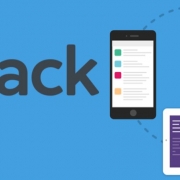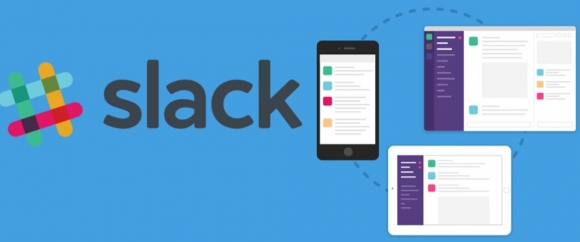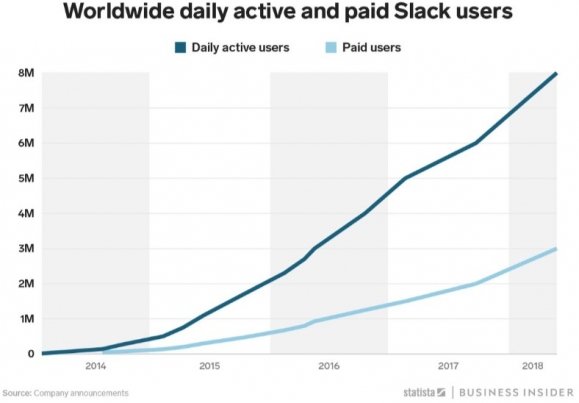Is It Time to Pick Up the Slack?
Being a stone’s throw away from the pulse of Silicon Valley, I have been showered with acute insights to which I otherwise would be oblivious.
This finely developed acumen is vital to keep my head above water and offer insights unfounded in any other newsletter.
The margins of victory and failure are becoming finer with each passing day, and that goes tenfold for the hyper-cutthroat trading world where each investor fights daily for his crust of bread.
The same thin margins apply for the tech industry whose prodigious march to profits has dwarfed any other industry.
Its far-reaching effects has brought forth social change unparallel to any other time in history.
The Mad Hedge Technology Letter has chronicled the messenger platforms rolled out by public companies such as Facebook and Snapchat, and their lust for profit extraction from every corner of the globe.
But there is another war going on in one nearby corner outside of our social lives I have yet to touch upon that will have profound consequences.
Enter the office.
The battle for hegemony in the workplace to evangelize a supreme workplace app is a big deal.
The office is where most semi-sober, semi-sane adults make a living, and where they allocate the lion’s share of sunlight hours before they mosey on home.
Slack, a workspace messenger app, has become the dominant way to communicate with professionals using collaborative messaging services, and offering integration with all legitimate apps that workers leverage to get work done.
After another round of fundraising, the company is now valued at more than $7 billion.
The $7.1 billion price tag is $2 billion more than the price only last September when Masayoshi Son’s SoftBank dipped its toes in to the tune of $250 million.
Overall, the company has at least 41 investors to its name.
This latest $427 million capital injection was led by Dragoneer Investment Group and General Atlantic, both private equity groups on the forefront of investing in transformative Silicon Valley firms.
Employees’ appetite for enterprise software has mushroomed in recent times, highlighting the dire need for progressive workplace apps liaising with other major productivity applications.
The smooth display interface and ease of use has spawned a monumental rush inside offices to adopt this sleek looking app called Slack.
Competition is coming with Microsoft and Facebook intent on disrupting Slack’s newfound success in the workspace area.
Slack is one of the most popular apps distributed by start-up companies and the numbers back it up.
The company has blown by 8 million daily active users (DAU).
Considering Slack only had 1 million users three years ago makes this feat even more impressive.
Of the 8 million (DAU)s, 3 million are paid subscribers.
Slack follows the freemium model such as other tech firms like Spotify, which lure customers in for free and allow access to its platform.
The free users are the biggest source of converts to its paid reoccurring subscription revenue.
Slack proves its worth by enhancing each product iteration based on diligent analyzation of customer feedback.
A no-brainer for many firms, but you would be surprised how many companies forgo this critical source of data.
Slack streamlines the process of communicating with work buddies.
No matter what industry or specialization with which you grapple, Slack makes it easy to share information over its platform.
In fact, Slack is an acronym for “searchable log of all communication and knowledge.”
Workplace portals can be initiated right away around projects or assignments, and the sense of team bred through this innovative communication channel offers the impetus for coworkers to contribute immediately.
Speed is money in tech land, and Slack gives a reason for coworkers to shun emails all together.
Being a customer-centric workplace app, any malfunctions in the harmony of its operations are met with instant patches of fixes so workers can carry out their time-sensitive tasks.
Other advanced functions aiding workers is the advanced search function allowing users to search for messages that were sent days, weeks, months, or even years ago.
Slack messages accommodate the trend for replying using a hoard of emoji’s, which has become a standard response as the emoji has taken a life of its own in the business world.
It has been found through surveys that emojis are a more effective way to respond to messages that need a blunt opinion.
Millennials are the tech-savvy generation that christened emojis as a normalized way of communication, and they are Slack’s target audience.
Another function allows users to type short code into its interface, triggering the software to remind users of a task and at a specific date and time.
Fastcompany.com smartly described Slack as “a virtual mash-up of the conference room and water cooler, with a pinch of corner office chit-chat.”
Slack is known for uber-productivity.
And if it’s something that a top-quality worker should harness such as referencing, enhancing, prioritizing, delegating, sharing, or creating - the app facilitates these traits seamlessly.
Slack certainly will boost the productivity of your team’s performance once the team gets a hang of its tools.
The emphasis of enterprise collaboration will continue as more work teams band together remotely.
This app perfectly captures functionality and meets the needs from companies where all users are online and live in different time zones.
If Slack continues evolving at its current speed, it could shortly wipe out emails.
Emails are a legacy type of communicative tool for companies, and its outdated interface is ripe for disruption.
Gmail’s disciples must have noticed that the past few iterations of Gmail have looked more and more like Slack, as it steals from other workplace app functions to upgrade its own workplace services.
All of this explains why Slack has been adding 2 million users per year and still has enormous potential for further disruption and growth.
Most early-stage companies are massive cash burners.
Reports from Didi Chuxing, the Chinese ride-sharing firm that bought out Uber in China, exposed the double-edged sword of being an up-and-coming tech firm.
Growth is often put up on a pedestal with profits relegated to the sidelines.
Even though Didi Chuxing is the dominant player in China, the exorbitant subsidies dished out to scarce drivers have devoured cash flow metrics.
Didi Chuxing has lost an astonishing $580 million in the first six months of 2018.
Slack is cash-flow positive.
An extraordinary accomplishment for an industry littered with firms exercising their industry right to spoon feed excuses of indulgent losses until their IPO day.
Even more impressive, Slack is only 5 years old and has already signed up more than 70,000 workgroup teams for its platform.
Slack has avoided even talking about going public, and this is bad news for retail investors hoping to get in on the action.
The carnage that tech firms have faced in front of Congress and in the press have budding tech firms rethinking if it’s worth opening themselves up to such torturous criticism.
Mark Zuckerberg is now the whipping boy on Capitol Hill.
Why risk it when bountiful funds await through venture capitalist coffers chomping at the bit to pay a premium for the latest hot tech company?
Elon Musk’s personal meltdown does not help either.
Sadly, it will be years before Slack chooses to go public - and most likely when the business becomes ex-growth.
Yes, it’s unfair to the average Joe, but life is unfair.
Money talks and as Slack feeds back its fresh capital into energizing its product, the valuation will rise to epic heights along with its DAU numbers.
If your office isn’t using Slack yet, it will soon.
Or…it’s probably not a modern place to work.
To visit its official website and sign up for free, please click here.
________________________________________________________________________________________________
Quote of the Day
“You should learn from your competitor, but never copy. Copy and you die,” – said Alibaba cofounder Jack Ma.




